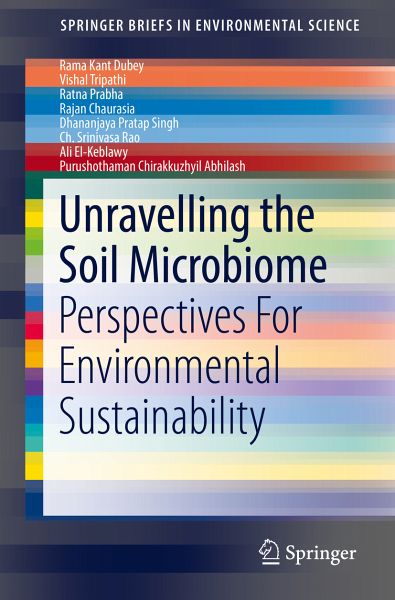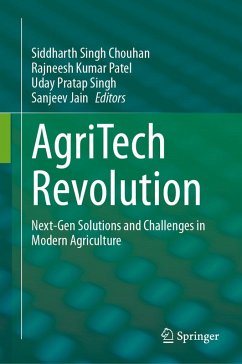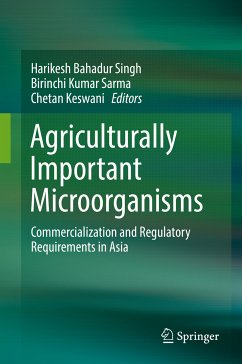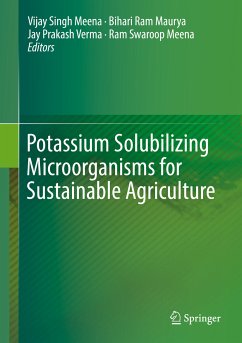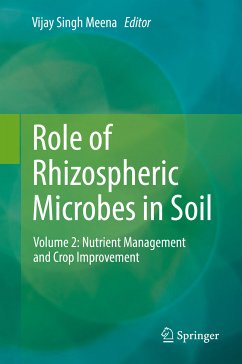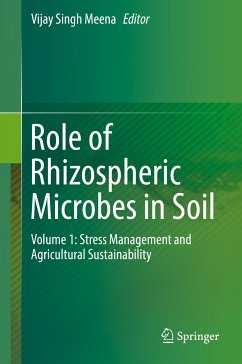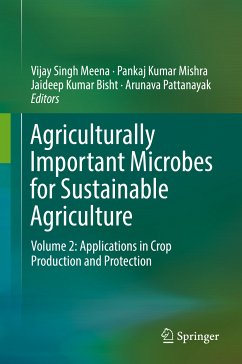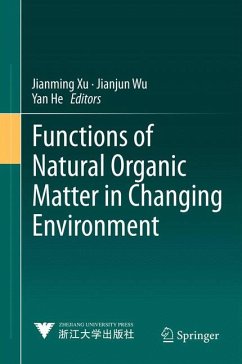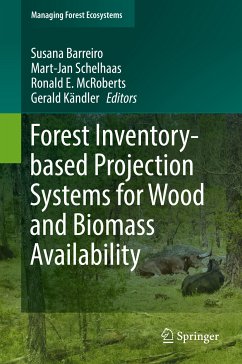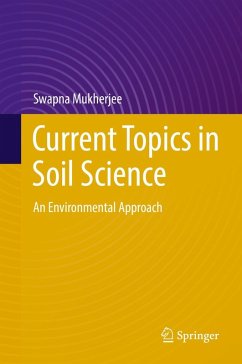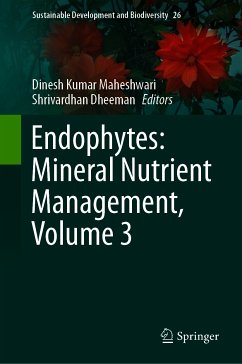Dr. Rama Kant Dubey is a doctoral research fellow, working in the area of plant-microbe interactions, sustainable agriculture and soil system sustainability at Institute of Environment & Sustainable Development, Banaras Hindu University, India. Being a Green Talent Awardee (BMBF, Govt. of Germany), he has also worked as a Guest Researcher at Helmholtz Zentrum München, Neuherberg, Germany. He did his MSc. in Industrial Microbiology from Devi Ahilya Vishwavidyalaya, Indore. He has received AU-CBT Excellence Award of Biotech Research Society of India, and NASI-Swarna Jayanti Puraskar' from the and National Academy of Sciences, India. Mr. Dubey has been serving as an active member for the Commission on Ecosystem Management (CEM), IUCN and serving as an Editor of the 'Agroecosystems Newsletter' of the IUCN-CEM Agroecosystems Specialist Group and special issue in Agronomy (MDPI). He is also serving as an expert reviewer for the various international research journalsfrom Elsevier, Springer-Nature, Wiley, and PLOS.
Dr. Vishal Tripathi is a Research Scholar at the Institute of Environment and Sustainable Development, Banaras Hindu University. His research interest lies in restoration and management of polluted lands and understanding the plant-microbe-pollutant interactions under changing climate to develop future remediation strategies. He has been recipient of the prestigious Green Talents Award of the Federal Ministry of Education & Research (BMBF), Germany for the year 2018. He has also been conferred with AU-CBT Research Excellence award of The Biotech Research Society of India, for the year 2016. He is a member of the Commission on Ecosystem Management (CEM) and serving as an expert reviewer for several international journals namely Scientific Reports (Nature Publishing Group), Biomass and Bioenergy (Elsevier), Agronomy for Sustainable Development (Springer), Restoration Ecology (Wiley), Biodegradation (Springer), Environmental Management (Springer), PLOS One (PLOS), Energy, Ecology & Environment (Springer).
Dr. Ratna Prabha is a SERB-National Postdoctoral Fellow (DST, Govt. of India) at Chhattisgarh Swami Vivekanda Technical University, Bhilai. She obtained her master's degree in Bioinformatics from Banasthali Vidyapeeth and Ph.D. in Biotechnology from Mewar University, India. She has been engaged in developing various digital databases on plants and microbes and has published two edited books, many book chapters, and various research papers and review articles in journals of international repute. Her current research interest lies in microbe-mediated stress management in plants, database development, comparative microbial genome analysis, phylogenomics and pangenome analysis of prokaryotic genomes, and metagenomics data analysis. She has completed several bioinformatics demonstration tasks at different national training programs on bioinformatics and computational biology. She has been awarded the Young Scientist Award at G. B. Pant University of Agriculture and Technology; S&T SIRI, Telangana; and CGCOST, Chhattisgarh.
Dr. Rajan Chaurasia is a Research Fellow (CSIR-NET-JRF) at the Institute of Environmental and Sustainable Development, Banaras Hindu University. His research interests are crop diversification, emerging cropping patterns, plant-microbe interactions, microbial diversity and sustainable agriculture. He has received Young Scientist Travel Award from International Union of Biological Sciences (IUBS), Paris. He is a life member of the Association of Environmental Analytical Chemistry of India (AEACI), Society for Science of Climate Change and Environmental Sustainability and active member of Global Land Programme (GLP), Global Soil Biodiversity Initiative, (GSBI) and Commission on Ecosystem Management of IUCN.
Dr. Dhananjaya Pratap Singh is a Principal Scientist inbiotechnology at ICAR-National Bureau of Agriculturally Important Microorganisms (NBAIM), Maunath Bhanjan, India. He obtained his master's degree from G. B. Pant University of Agriculture and Technology, Pantnagar, and Ph.D. in Biotechnology from Banaras Hindu University, Varanasi. His research interests include plant-microbe interactions, bio-prospecting of metabolites of microbial and plant origin, microbe mediated stress management in plants, metabolomics-driven search for small molecules, and bioinformatics in microbial research. He was involved in the development of a supercomputational facility for agricultural bioinformatics in the microbial domain at ICAR-NBAIM under the National Agricultural Bioinformatics Grid (NABG) program of ICAR. He has been awarded with various prestigious awards including the Dr. A. P. J. Abdul Kalam Award for Scientific Excellence in 2016 by Marina Labs. He has more than 134 publications and one Indian patent to his credit.
Dr. Ch. SrinivasaRao is the Director of ICAR-national Academy of Agricultural Research & Management (NAARM), Hyderabad. He did his M.Sc (Ag) from ANGRAU, Bapatla, AP, Ph.D from IARI, New Delhi and Post-Doctoral from Tel-Aviv University, Israel. His specializations are soil carbon sequestration, climate change, agriculture contingency planning, conservation policy and agriculture research management. He was coordinated AICRP on dryland agriculture and Director of CRIDA, Hyderabad during 2013-17. He was the National Coordinator for ICAR-flag ship program on climate change, NICRA and worked as technical chairman of National Mission for Sustainable Agriculture, climate change negotiator in Indian delegation represented at UNFCCC, SBSTRA, COP meetings etc. He is executive board member of International Dryland Development Commission and Member, Asian Carbon Network. He is a Fellow of NAAS, ISSS, ISPRD and received prestigious awards from Honourable President and Prime Minister of India. He has published 255 research papers, 25 books and serving as a regular reviewer for 15 International journals.
Prof. Ali El-Keblawy is a Professor and Chair of the Applied Biology Department, University of Sharjah, UAE. He was awarded his PhD degree in Plant Ecology from Tanat University, Egypt and Windsor (Ontario, Canada) in a joint program. Dr El-Keblawy has established the Sharjah Seed Bank and Herbarium and was director for it for 5 years. His research interests include, plant ecology, biodiversity and conservation of desert plants, invasion biology, rangeland management, propagation of native plants of the Arab Gulf deserts and domestication of desert native plants for urban landscaping. He has been awarded with Distinguished Faculty award in Scientific Research, University of Sharjah.
Prof. Purushothaman Chirakkuzhyil Abhilash is a senior Assistant Professor of sustainability science in the Institute of Environment & Sustainable Development at Banaras Hindu University in Varanasi, India and Chair of the Agroecosystem Specialist Group of IUCN-Commission on Ecosystem Management. He is a Fellow of the National Academy of Agricultural Sciences (NAAS) and his research interest includes land degradation and restoration, bioremediation, integrated remediation techniques and harnessing plant-microbe interactions as a low-input techniques for multipurpose environmental benefits. He is serving the editorial board of Agronomy, Biodegradation, Biomass & Bioenergy, Energy, Ecology & Environment, Environmental Management, Land Degradation & Development, Land, Restoration Ecology, Sustainable Earth, and Tropical Ecology and as an expert of IPBES, IPCC, UNDP-BES Network, UNCCD and IRP of UNEP.
